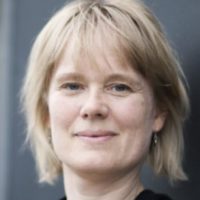
Four years of economic hardship appears to accelerate the aging process, according to a recent study from Denmark.
Investigators tested 5,500 midlife adults for clinically significant signs of physical and cognitive health, and then compared these results to the adults’ income over the past 22 years. They found that people who experienced four or more years of relative poverty showed earlier signs of aging when compared to people who had never been below the poverty threshold. This included poorer physical capabilities such as weakened grip strength, memory deficits and increased inflammatory levels in the blood.
Relative poverty was defined as an annual income of 60% below the median income.
The study’s conclusions could be used to shape health policy, suggested lead researcher Rikke Lund, M.D., Ph.D., and her research team.
“Many people do not necessarily experience any noticeably poorer physical capability until they are growing older and are therefore not aware that their bodies have begun to age prematurely. This means that there will be no focus on preventative measures until it is too late,” Lund said.
The study was published in the European Journal of Aging.



